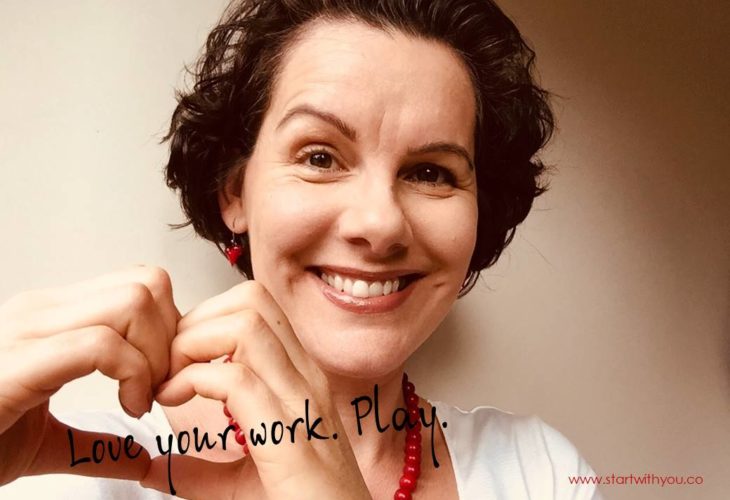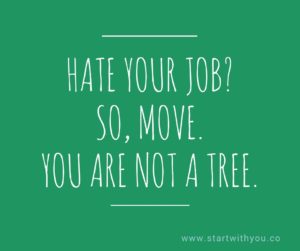Alan Watts, revered philosopher, writer and speaker, had a very elegant way of describing many things – including our approach to work: “You are involved by and large in a very strange business system which divides your day into work and play. Work is something that everybody does and you get paid to do it because nobody could care less about doing it.” He said “Man suffers only because he takes seriously what the gods made for fun.”
I’m more likely to cut to the chase and say that we’ve turned ‘work’ and the act of doing something we’ve committed to into an instrument of torture: we do things we don’t enjoy because we want to pay bills and mortgages in order to have more enjoyment. Somewhere along the way we’ve decided that work is work, and play is play. But is that as it should be? Is it for real?
You may be one of those lucky folks who says, No, work is play to me. I love what I do. It’s great fun and it doesn’t feel like work.
To you, I say, go forth and enjoy. You’ve conquered the social norms and cultural constructs you’re probably surrounded by, and have found you can love and play at your work. Amen.
For the rest of you: Read on, dear ones…
… because if you want to be enjoying your ‘work’ more you may want to start by looking at your own perceptions and ideas of work. Most of us live our daily lives as if we are setting it out the way we want it each day, choosing what we do and how we do it, while the reality is that we are thoroughly at the mercy of those cultural constructs and social norms I allude to. One of the biggies is this idea that an activity is either one or the other – work or play. In this astute article from Zat Rana on Why Alan Watts Believed Our Idea of Work is Completely Wrong, he points out that ‘we forget that the boundary between work and play is illusionary’. We made it up, people.
The very idea of ‘work’ can put us right off doing something. Have you noticed how helping with the dishes at a friend’s place after a meal is often more appealing and satisfying than doing your own? Our language and words frame everything we experience. The moment we use words to distinguish between two things, we start putting them in boxes. Many things of which need never have been boxed in the first place. For example, is watering your vege garden in the evening a chore or a pleasure? Is washing the dishes a have-to or a get-to? Is helping your customer solve their problem a pain in the butt or an interesting challenge?
When we feel something should be done or is now obligatory, it usually takes the fun right out of it. Even though you planted the vege garden yourself. Even though you just enjoyed a meal that the majority of the world’s population did not receive this evening. Even though that job you’re bitching about to anyone who’ll listen is the job you applied for and accepted. You chose it, it got termed ‘work’ and a have-to, and promptly became very un-fun.
[Okay, so perhaps it turns out the job isn’t all it was cracked up to be.
So, move. You are not a tree.]
Choose
Perhaps the most profound shift we can make here is to remember we can choose. We can choose to move jobs. We can choose to plant vegetables at home or not. We can choose whether watering the garden is just another thing to do, or a nourishing way to enjoy being outside, watching the sun going down and feeling the grass under our feet. We can choose to not move jobs (for whatever of the many reasons this may be for now) and to instead find meaning in what we’re doing, or to make it interesting for ourselves so it is more bearable – and maybe even enjoyable.
Zat Rana makes a very important point in his article that I think anyone in the world of work (individuals and organisations included) needs to understand: “Choice is an essential requirement in humans for a feeling of motivation and control, and our distinction of certain commitments as work completely strips that away from us”. Generally speaking, when we have choice (eg. about how we spend our time), our stress levels go down and we are happier. When we have choice about how we think about how we’re spending our time, we are also better off. And that is a choice you always have; you can always make a new decision about how you think or feel about a task or activity or commitment – or a less than satisfying job.
Living life now
The biggest loss we can suffer by treating work as a means to an end is that is has working now for the future and forgetting to be in life right now. Most people work to earn money in order to pay their bills and then pay for the life they want. Why not enjoy life right now? This is a core principle within mindfulness teachings; to be in the now moment rather than dwelling in the past or worrying about or waiting for the future. I think it’s one of main reasons we needed mindfulness to sweep across the Western world over the last decade; we’ve forgotten how to live. Many of us put off our enjoyment of life for all the hours we’re at work – either all day until we get home at night, all week until the weekend, or for the whole of a three-month project that has us on some kind of mission. Sometimes we put it off for years. We’re busy slogging away so that we’ll be able to finally take it easy, move to the country, have more time with the kids. Meanwhile, the kids end up at university or overseas and are too busy for that.
Yes, we all have bills to pay and want to afford various lifestyle choices from being able to eat organic through to having the boat and bach, or travel. How can you balance the now and the later, though? How can you actually let work be its own reward as the saying goes, and take enjoyment and nourishment from it, now? Can you let yourself go get a job you truly enjoy? Can you let yourself have fun?
Bringing the play back
Alan Watts encouraged framing work as play – as something in which we can enjoy, create, flourish. I think many of us have been brought up with the idea we must work hard (see more on this here – ) as if it’s a medal of honour, rather than being encouraged to foster our creativity and natural skills and talents that we love to use. We end up pushing ourselves to do the sensible thing we’re told we should do, rather than choosing what feels inspiring and energising. We played endlessly as children and slowly learned that to be a successful and accepted human being (in this family/town/society) you must be responsible, hard-working and diligent. Most of the people who I coach through burn-out or high stress are in this camp entirely. (Couch potatoes do not suffer from burn-out!) I’m talking about the diligent hard workers of the world. And they’ve exhausted themselves from the push. It’s not a coincidence that heart attacks most commonly occur on Monday mornings (as recorded in the UK and US). People are breaking their hearts by pushing on.
If you decide to be more playful in your work and allow yourself to enjoy it more, the perceptions and expectations of the people around you can be the most frustrating (and potentially de-railing) distraction. The majority is still stuck in the current cultural constructs of ‘work hard’ and many of those dear individuals do not like their status quo being messed round with by people like you who want and choose a better life. But mess with your status quo. Choose to play. No one will do it for you and no one else is living your life. It’s yours to live as you wish, as you well know.
I love what I do. I can still get bogged down occasionally by ‘chores’ or the thought of having to present to a group, but the moment I remember that this is something I get to do, it transforms. I remember then that I want to do it, and that it is a privilege to do so. And for me, it’s FUN.
Let’s liberate ourselves, bring the play back and live awesomely.
Karen x






Leave a Reply